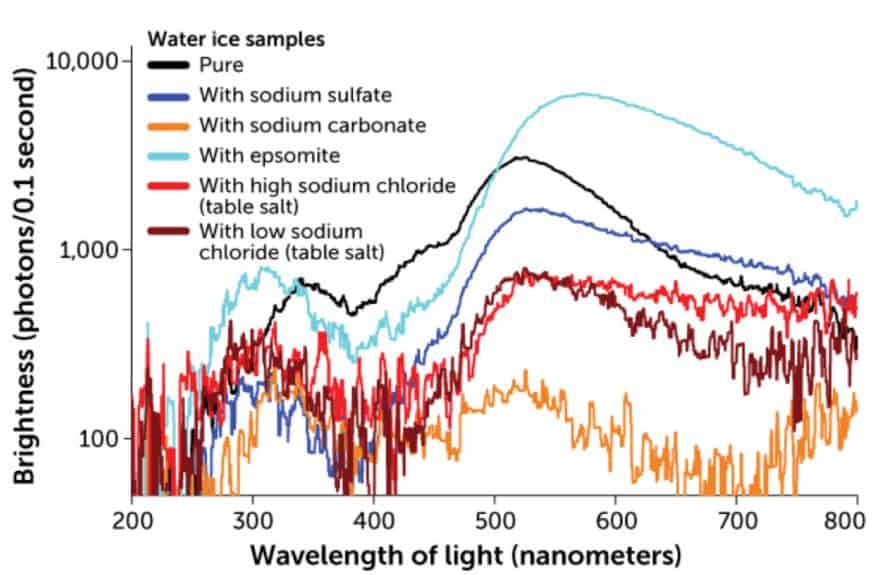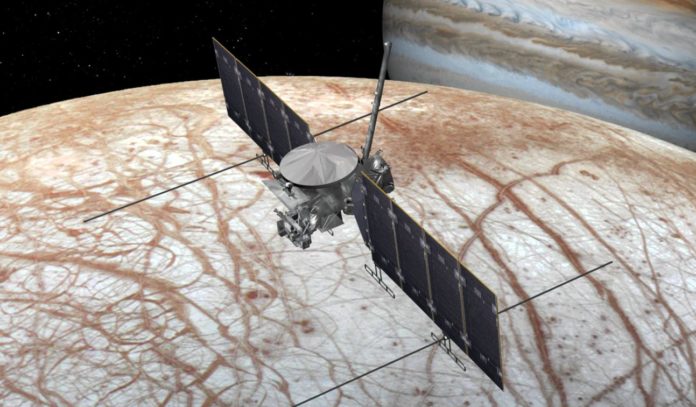Europa’s icy surface is constantly bombarded with electrons, which cause it to glow slightly, and this radiation depends on the composition of the ice.
One of Jupiter’s largest moons, Europa, is covered in ice that appears to hide a vast reservoir of liquid water. It is one of the most promising places to find life in the entire solar system. And when new space probes arrive here, they’ll notice a faint glow emanating from the ice in the dark. This unexpected effect is predicted by experiments conducted by Murthy Gudipati and colleagues at NASA’s Jet Propulsion Laboratory. Scientists talk about them in an article published in the journal Nature Astronomy.
The fact is that Europa’s surface is constantly bombarded by a stream of charged particles (mainly electrons), which are accelerated in the powerful magnetic field of the nearby giant Jupiter. Scientists have replicated this process in a laboratory to find out how ice reacts to such exposure. Quite unexpectedly for themselves, they found that ice weakly fluoresces, and its glow depends on the contained impurities.
The authors obtained ice both from distilled water and from water with various salts dissolved in it, placed the samples in a vacuum, at a temperature of about minus 173 ° C, and bombarded with a stream of electrons with energies typical of those that Europe receives. The spectrometer made it possible to capture the resulting weak glow, showing that the addition of table salt reduced the brightness, and epsomite (magnesium sulfate) increased.

This fluorescence is so weak that it will be possible to notice it on Europa only with the help of future space probes that can work directly in the Jupiter system. Scientists expect such observations to be carried out by the upcoming Europa Clipper mission, during flights over the night side of the satellite. The brightness of the luminescence of individual areas of the ice can be used to suggest the content of various salts in them, and possibly to clarify the composition of the subglacial ocean.
On the other hand, the experiments described were carried out only for a short time: the ice samples were treated with an electron flow for only 20 seconds. In Europe itself, this has been going on for billions of years, and it is difficult to say if fluorescence is capable of lasting that long. And, of course, it is very likely that the ice on the satellite contains too little salt for a weak effect to be noticeable. All of this will become clear in the early 2030s when the Europa Clipper arrives at Jupiter.
